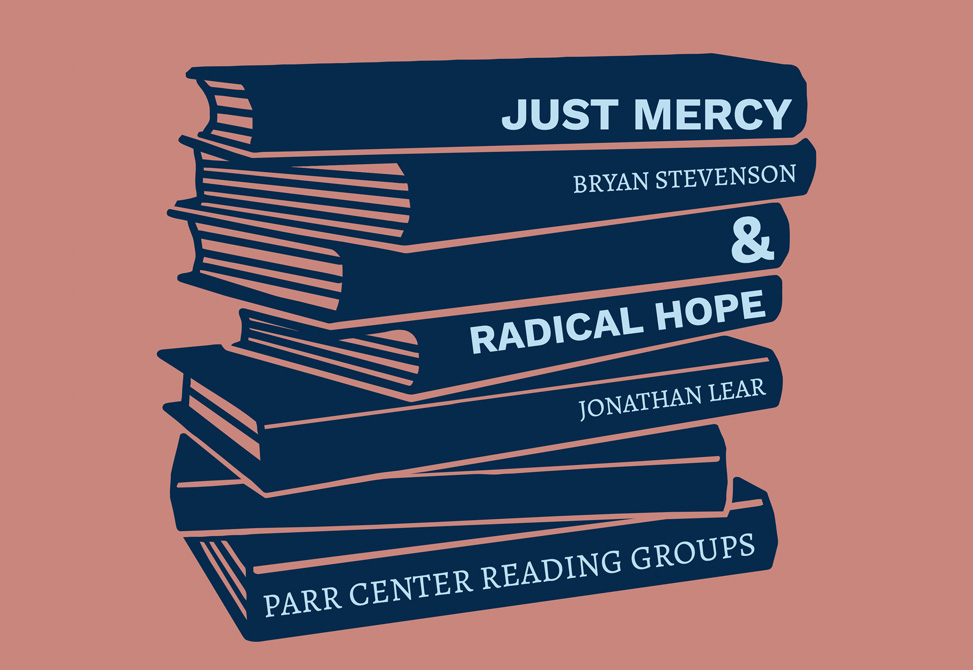Undergraduate Reading Groups!

What is a reading group?
This Parr Center is thrilled to announce our inaugural suite of Reading Groups in Ethics! Reading groups meet, with a leader, over dinner to discuss a book relevant to ethics. The books will be provided and the cost of dinner will be covered. Each group will meet eight times over the course of the semester for approximately an hour and a half each meeting; groups meet after classes have ended for the day, between 6:30 and 7:00 pm, depending on the discussion leader.The Parr Center is providing two reading groups for UNC Undergraduate students during the Spring 2020 semester. Groups are listed below. Click HERE to apply. (Our application process is joint with PPE’s reading group program.)
Just Mercy: A Story of Justice and Redemption by Bryan Stevenson
Delaney Thull (meets Tuesdays)
Bryan Stevenson’s book Just Mercy: A Story of Justice and Redemption focuses on topics regarding the American justice system, including mass incarceration, the death penalty, private prisons, imprisonment of women and teenagers, mental illness, racial injustice, and poverty. The book details several stand-out cases from Stevenson’s career in public interest law in Alabama, as well as the work of his legal advocacy nonprofit called the Equal Justice Initiative. Stevenson argues that the opposite of poverty is not wealth, but rather is justice. This book is an excellent starting point for understanding the ethical questions driving the contemporary policy debates about mass incarceration and prison reform. It’s also a great case study on taking a values-based approach to navigating a career in law, politics, policy, or advocacy.
Radical Hope by Jonathan Lear
Alex Campbell (meets Wednesdays)
“When the buffalo went away the hearts of my people fell to the ground, and they could not lift them up again. After this nothing happened.” This is how Plenty Coups, the last great chief of the Crow nation, described the events that rapidly deprived the Crow of their way of life. In Radical Hope, Jonathan Lear uses Plenty Coups’ story to ask how we ought to respond to the very real possibility that we too may be deprived of our way of life? Drawing from anthropology, history, and philosophy, Lear argues that the ideas and values that gave meaning to the lives of the Crow people were embedded within their form of life, the narratives they told, and the rituals that they performed. When the Crow could no longer continue living as they had, they faced a particularly stark kind of meaninglessness–as Plenty Coups put it, “After this nothing happened.” Yet Lear finds hope and courage in the way that Plenty Coups faced the erasure of his culture, and this prompts Lear to ask what it means to be hopeful and courageous in such circumstances, how one might do that, and whether it is ultimately justifiable to have such radical hope. While we will be interested in Lear’s analysis of Plenty Coups’ story in its own right, we will also be concerned with how these timeless questions relate to us given increasing uncertainty about the future due to things like climate change, rapidly changing technologies, and the rise of populism. How should we conceive of our future? Does it make sense for us to feel hopeful?
